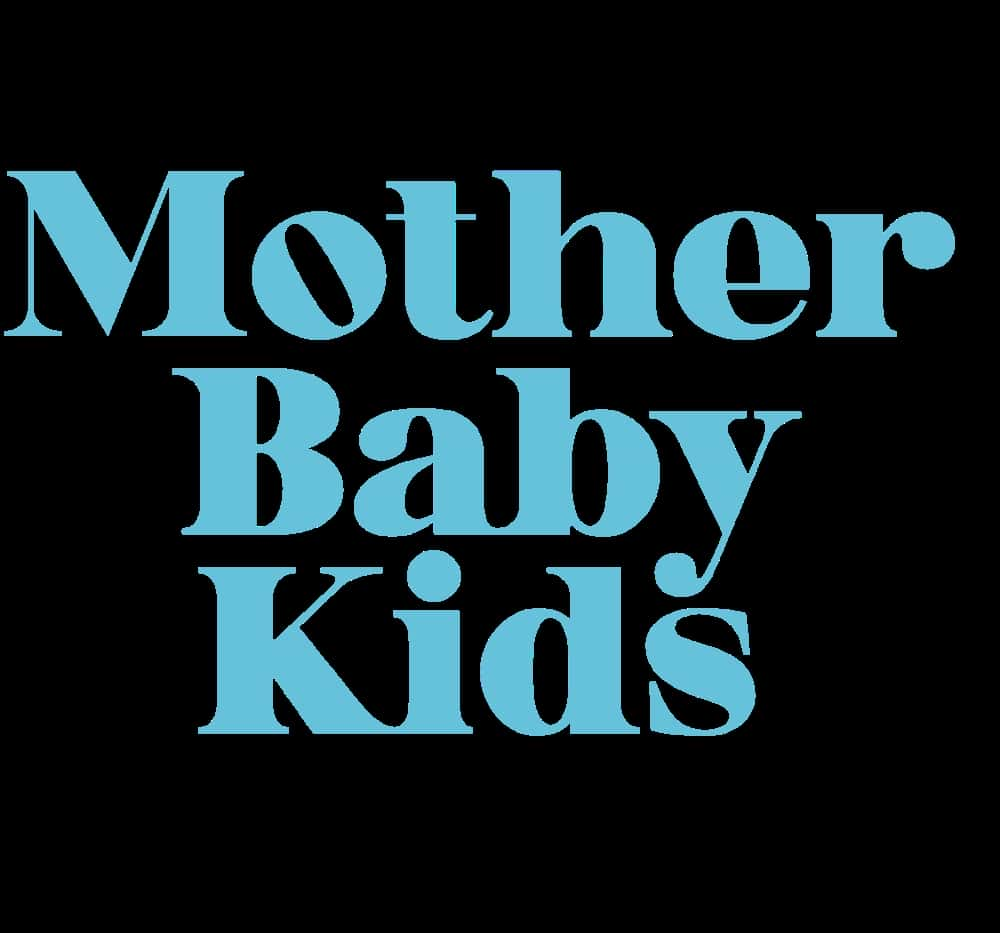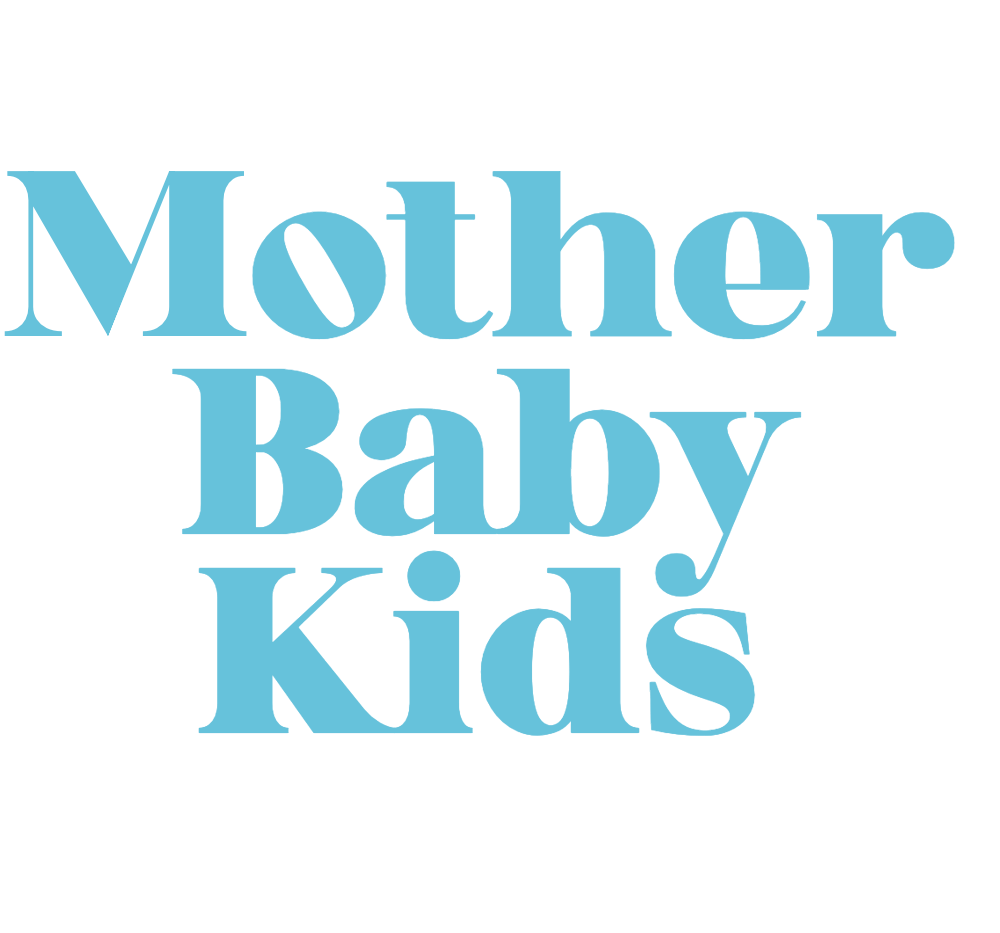Third Trimester
5 Tips to Manage Toothache in Pregnancy Third Trimester
Journey through effective tips for managing toothache in the third trimester of pregnancy, ensuring comfort and safety for both mother and baby.

Experiencing a persistent toothache in the third trimester of pregnancy can be quite uncomfortable. Recently, a friend of ours shared her struggle with managing dental pain during this important time.
However, there are practical tips that can help alleviate such discomfort and guarantee a smoother journey towards childbirth. From safe pain relief options to natural remedies, we will explore effective strategies that can provide relief without compromising the health of the mother or the baby.
Key Takeaways
- Consult with a dentist for safe pain relief options.
- Use natural remedies like clove oil or ginger for relief.
- Maintain oral hygiene with gentle brushing and flossing.
- Seek professional dental care for effective management in the third trimester.
Safe Pain Relief Options
When managing toothache in the third trimester of pregnancy, it's essential to prioritize safe pain relief options such as acetaminophen and cold compress application. Acetaminophen is considered a safe choice for pain relief during this stage, as it's generally recommended for pregnant individuals. Additionally, applying a cold compress can help reduce inflammation and provide relief from toothache discomfort without posing any risks to the pregnancy.
Consulting with a dentist is vital during the third trimester to explore safe treatment options tailored to your specific situation. Professional guidance guarantees that the chosen methods aren't only effective but also pose no harm to you or your baby. It's important to avoid aspirin and ibuprofen for pain relief as these aren't recommended during pregnancy due to potential risks.
Prioritizing dental care and seeking expert advice can help you manage toothache effectively in the third trimester, ensuring both your oral health and overall well-being are taken care of during this critical time.
Maintaining Oral Hygiene

Maintaining good oral hygiene during pregnancy is essential for ensuring both your dental health and overall well-being. Brushing your teeth gently twice a day with a soft-bristled toothbrush can help prevent gum irritation. Using fluoridated toothpaste strengthens enamel, lowering the risk of cavities.
Don't forget to floss daily to eliminate plaque and food particles between teeth, which promotes gum health. Rinsing with an alcohol-free mouthwash combats bacteria, keeping your breath fresh. Hydration is key, so drink plenty of water to wash away food debris and reduce mouth acidity.
Consulting With Healthcare Provider
To guarantee the safety of both you and your baby during the third trimester of pregnancy, consulting with your healthcare provider before taking any medication for toothache is essential. Your obstetrician can offer valuable insights into managing toothache, ensuring the well-being of both you and your little one.
Here are some key points to keep in mind when consulting with your healthcare provider:
- Discuss any concerns or symptoms related to toothache with your obstetrician for proper evaluation.
- Your healthcare provider can provide guidance on safe home remedies or suggest suitable dental treatments.
- Communicate any changes in toothache intensity or discomfort to your healthcare provider for effective management.
- Seeking professional advice from your healthcare provider can help address toothache issues promptly.
- Consulting with your healthcare provider is important for managing toothache in the third trimester and maintaining good health for you and your baby.
Using Natural Remedies

During the third trimester of pregnancy, natural remedies can be effective in alleviating toothache discomfort. Here are some gentle and safe options to think about:
| Natural Remedies | Description |
|---|---|
| Clove Oil | Its analgesic properties make it helpful for toothache. |
| Ginger | Chewing on ginger can reduce inflammation and pain. |
| Salt Water | Rinsing with warm salt water reduces inflammation. |
| Cold Compress | Applying a cold compress can numb the area and ease pain. |
| Massaging Gums | Gently massaging gums stimulates blood flow for relief. |
These remedies offer natural ways to manage toothache during the third trimester without the need for medications. Clove oil and ginger provide relief with their anti-inflammatory properties, while salt water helps in reducing inflammation and fighting bacteria. Using a cold compress can numb the area and alleviate pain, and massaging the gums aids in improving blood circulation for comfort. These remedies can be beneficial in easing toothache discomfort safely during this important stage of pregnancy.
Seeking Professional Dental Care
Ensuring ideal oral health in the third trimester of pregnancy necessitates timely consultation with dental professionals for effective management of toothache and related concerns. Seeking professional dental care during this critical period offers pregnant individuals the opportunity to receive safe and tailored treatments to address oral discomfort.
Here are some key reasons why dental care is essential in the third trimester:
- Dental professionals can provide safe and effective treatments for toothache and other oral health issues specific to pregnant individuals.
- Regular dental check-ups and cleanings help prevent and manage toothache and related problems during the third trimester.
- Dentists offer valuable guidance on managing toothache while prioritizing the health of both the mother and the baby.
- Timely intervention by dental experts ensures optimal oral health and alleviates discomfort associated with toothache in pregnancy.
- Professional dental care in the third trimester plays a critical role in maintaining overall well-being and comfort during this sensitive period.
Frequently Asked Questions
How Do You Get Rid of a Toothache While Pregnant?
When we're pregnant and dealing with a toothache, we can find relief by rinsing with warm salt water, applying a cold compress, and consulting a dentist for safe treatment options. Avoid self-medication and prioritize professional dental care.
Is Toothache Normal in Third Trimester?
Yes, toothache in the third trimester is common due to hormonal changes and increased gum sensitivity. Seeking dental care and maintaining oral hygiene are essential. We acknowledge the discomfort and can provide guidance on managing toothache during this important time.
How Should I Sleep With a Toothache While Pregnant?
When pregnant with a toothache, we find relief by elevating the head, using a pregnancy pillow, avoiding pressure on the tooth, maintaining good oral hygiene, and applying a warm compress. These practices aid in managing discomfort for a restful sleep.
What Are the Dental Treatments for Third Trimester Pregnancy?
In the third trimester of pregnancy, dental treatments may involve emergency procedures for severe toothache. Routine cleanings and fillings are generally safe. Local anesthesia with caution can help manage tooth pain. Consult with both your obstetrician and dentist before any treatment.
Conclusion
To wrap up, managing toothache during the third trimester of pregnancy can be tough, but it's important to prioritize the health of both mother and baby. Remember, a healthy smile leads to a happy heart.
So, don't hesitate to reach out to your healthcare provider or dentist for guidance and support. Stay strong, stay positive, and remember that relief is just around the corner.
Take care of yourself, you're doing great!
Nancy combines her love for writing with a deep understanding of the diverse dynamics of family life. As a parent, she brings personal experience and empathy to her work, covering topics from early childhood to the teenage years. Nancy’s work is driven by the belief that every family’s story is unique, and sharing these stories can inspire and support others on their parenting journey.
Third Trimester
Why Does Third Trimester Morning Sickness Occur?
Curious about why morning sickness strikes in the third trimester? Explore the surprising reasons behind this phenomenon for expectant parents.

Facing unexpected morning sickness during the third trimester might confuse numerous expecting parents. Although morning sickness is typically linked with the initial phases of pregnancy, experiencing it during the last months can lead to concerns.
Numerous factors contribute to this phenomenon, ranging from hormonal fluctuations to the physiological changes that the body undergoes as it prepares for childbirth. Understanding the specific reasons behind third-trimester morning sickness can shed light on how to address and manage this unexpected symptom effectively.
Key Takeaways
- Hormonal changes and fetal growth impact gastrointestinal functioning, causing third-trimester morning sickness.
- Increased estrogen, progesterone, and hCG levels contribute to nausea during late pregnancy.
- Pressure from the growing baby on the digestive system intensifies symptoms of nausea.
- Effective management strategies involve dietary adjustments, hydration, and symptom relief methods.
Possible Causes of Third Trimester Morning Sickness
During the third trimester of pregnancy, hormonal changes are a key factor contributing to morning sickness. As our bodies undergo significant adjustments to accommodate the growing baby, these changes can lead to symptoms such as nausea and vomiting. The increased pressure from the baby on the digestive system, coupled with shifts in stomach and gastrointestinal muscle relaxation, can trigger bouts of severe nausea and vomiting in the third trimester. Additionally, specific food choices and dietary factors can exacerbate these symptoms, making it vital to pay attention to what we eat during this time.
Persistent morning sickness in the third trimester can be challenging to manage, but understanding the underlying causes, such as hormonal shifts and bodily adjustments, is essential in finding ways to alleviate these symptoms. By recognizing the various factors that contribute to third-trimester nausea, we can take proactive steps to help ease discomfort and improve our well-being during this important stage of pregnancy.
Hormonal Changes and Nausea

Hormonal changes in the third trimester significantly contribute to the occurrence of nausea in pregnant individuals. These fluctuations, such as increased levels of estrogen and progesterone, can disrupt the normal functioning of the gastrointestinal system, leading to symptoms like nausea and vomiting.
As pregnancy progresses, the placenta becomes a major source of hormones, potentially intensifying morning sickness during the third trimester. Additionally, hormones like hCG (human chorionic gonadotropin) continue to play a role in triggering nausea even in the later stages of pregnancy.
The impact of these hormonal shifts on the digestive tract and the body's overall physiological changes can result in persistent morning sickness throughout the third trimester. It's important to understand how these hormonal changes affect the body to better manage and alleviate the discomfort experienced during this stage of pregnancy.
Effects of Fetal Growth on Nausea
The physical growth of the fetus in the third trimester exerts pressure on the digestive system, contributing to heightened feelings of nausea in pregnant individuals. As the baby develops and takes up more space in the womb, it can press against the stomach and intestines, making it challenging for the digestive system to function properly. This pressure can lead to difficulties in digesting food, resulting in increased nausea for expectant mothers.
In addition to the physical pressure caused by fetal growth, hormonal changes during pregnancy can also play a role in intensifying nausea symptoms. The combination of these factors can create a perfect storm for experiencing morning sickness in the later stages of pregnancy. Moreover, the movements and positioning of the baby within the uterus can further exacerbate feelings of nausea, especially as the pregnancy progresses towards the final months.
Understanding how fetal growth impacts the digestive system can help pregnant individuals cope with the challenges of third-trimester nausea.
Managing Third Trimester Nausea

Effective management of third trimester nausea involves implementing various strategies to alleviate symptoms and promote comfort for pregnant individuals. When dealing with late pregnancy nausea, consider the following:
- Opt for Small, Frequent Meals: Consuming small meals throughout the day can help prevent your stomach from becoming too full, potentially easing nausea.
- Identify and Avoid Triggers: Be mindful of foods or smells that may trigger your nausea, such as spicy, fatty, or acidic foods, and try to steer clear of them.
- Explore Relief Options: Some pregnant individuals find relief from third trimester nausea by using remedies like ginger supplements, acupressure wristbands, or B6 supplements.
Tips for Alleviating Late Pregnancy Nausea
To alleviate late pregnancy nausea, incorporating vitamin B6-rich foods or supplements into your diet can be beneficial. Late pregnancy nausea, often experienced in the third trimester, can be triggered by hormonal changes, stomach displacement, and certain foods.
Eating smaller meals throughout the day and avoiding trigger foods like spicy or oily dishes can help manage symptoms. Ensuring adequate hydration is also essential in combating nausea. Foods high in Vitamin B6, such as bananas, chickpeas, and fortified cereals, can provide relief.
However, if symptoms persist and have a notable impact on daily life, consulting a healthcare provider is advisable. In severe cases, anti-nausea medication or hospitalization for intravenous fluids may be necessary to alleviate late pregnancy nausea.
Frequently Asked Questions
Why Do I Have Morning Sickness in My Third Trimester?
In the third trimester, morning sickness can persist due to hormonal changes, pressure from the growing baby, and stomach muscle relaxation. Factors like displacement of the stomach by the enlarging uterus and individual hormone sensitivity contribute to these symptoms.
Do You Get More Nauseous in Third Trimester?
In the third trimester, we often experience heightened nausea due to hormonal changes, increased pressure on the digestive system, and dietary factors. It can be challenging, but knowing it's temporary helps us cope.
Is It Normal to Throw up at 36 Weeks Pregnant?
Yes, throwing up at 36 weeks pregnant can be normal due to hormonal changes and increased pressure on the digestive system. However, persistent or severe symptoms should be discussed with a healthcare provider for proper guidance.
Why Am I Nauseous at 37 Weeks Pregnant?
We're feeling nauseous at 37 weeks due to various factors like hormonal shifts, pressure on the digestive system, food aversions, and gastrointestinal issues. Changes in blood sugar and hydration levels can also contribute.
Conclusion
As we navigate the turbulent waters of third trimester morning sickness, we must remember that we're the captains of our own ships.
Just like a sturdy anchor holds a ship steady in a storm, our resilience and determination will guide us through the waves of nausea.
By implementing practical strategies and seeking support when needed, we can weather this challenging period with grace and strength.
Together, we can sail towards the calm shores of motherhood.
Nancy combines her love for writing with a deep understanding of the diverse dynamics of family life. As a parent, she brings personal experience and empathy to her work, covering topics from early childhood to the teenage years. Nancy’s work is driven by the belief that every family’s story is unique, and sharing these stories can inspire and support others on their parenting journey.
Third Trimester
How to Handle a Hit to My Pregnant Belly in Third Trimester
Leverage expert advice on what to do after a hit to your pregnant belly in the third trimester for optimal safety and peace of mind.

During the final trimester, the anxiety that every action might endanger your cherished bump can be intense. However, what steps should you take if your pregnant belly does indeed suffer an impact during this crucial period?
The steps you take immediately following an impact can greatly impact the well-being of you and your baby. Let's explore some important considerations for handling such situations with care and caution.
Key Takeaways
- Seek immediate medical attention for any abdominal impact in the third trimester.
- Monitor fetal movements closely, especially for decreased activity post-belly hit.
- Report symptoms like bleeding, contractions, or cramping promptly to your healthcare provider.
- Prioritize emotional well-being through support systems and self-care during this time.
Immediate Actions to Take
What should we do immediately after a hit to the pregnant belly in the third trimester?
Any impact to the abdominal area during the third trimester necessitates seeking immediate medical attention. After a pregnant belly is hurt, contacting a healthcare provider promptly is vital. It's essential to report any symptoms such as bleeding, contractions, or cramping to your doctor post-incident.
The risk of placental abruption is heightened during the third trimester, making immediate evaluation imperative. By guaranteeing prompt assessment, both the mother and baby's well-being can be safeguarded effectively.
If there's any concern regarding reduced fetal movement following a hit to the belly, don't hesitate to reach out to your healthcare provider for a thorough evaluation. Your healthcare provider is there to support you and make sure that you and your baby receive the necessary care and attention, especially during this critical phase of pregnancy.
Monitoring Baby's Movements

Monitoring fetal movements post a belly hit in the third trimester is essential for guaranteeing the baby's well-being and prompt medical attention if needed. It's critical to stay vigilant and observe any changes in the baby's activity, especially looking out for reduced movements.
Here are some key points to remember:
- Stay Attentive: Regularly monitor your baby's movements, paying close attention to any decrease in fetal activity following a belly impact.
- Report Changes: If you notice reduced fetal movements after a hit to your belly in the third trimester, promptly inform your healthcare provider.
- Seek Immediate Help: Any decrease in fetal movements post-incident requires immediate medical attention. Contact your doctor or seek urgent evaluation to guarantee the well-being of your baby.
Signs to Watch Out For
After a hit to the pregnant belly in the third trimester, it's important to be aware of certain signs that may indicate potential complications for both the mother and the baby. Decreased fetal movement following a bump to the belly is a red flag that requires attention.
Any symptoms like vaginal bleeding, contractions, or cramping should be carefully monitored as they can signal underlying issues. It's essential to stay vigilant for signs of placental abruption or other complications that could arise after trauma to the uterus.
If you notice reduced fetal activity or experience any unusual symptoms, seeking immediate medical advice is vital. Direct impact to the pregnant belly in the third trimester can cause harm, so it's important to be proactive in consulting a healthcare provider for evaluation.
When to Seek Medical Help

If you've experienced a direct hit to your pregnant belly in the third trimester, it's important to promptly notify your healthcare provider for immediate evaluation and care. Seeking medical help is vital in the following situations:
- Significant Decrease in Baby's Movements: If you notice a significant decrease in your baby's movements after the abdominal contact, contact your healthcare provider immediately.
- Bleeding, Contractions, or Cramping: Any signs of bleeding, contractions, or cramping following a hit to your belly in the third trimester shouldn't be ignored. Seek medical attention promptly.
- Concerns About Baby's Well-being: If you have concerns about your baby's well-being after a traumatic incident, it's essential to seek immediate medical attention for a thorough evaluation.
Tips for Emotional Well-being
Following a hit to your pregnant belly in the third trimester, it is important to prioritize your emotional well-being by seeking support and engaging in relaxation techniques. It's normal to feel fear and anxiety after such an incident, but remember, you're not alone. Reach out for emotional support from loved ones or consider speaking with a professional counselor to process these emotions. Additionally, practicing relaxation techniques like deep breathing, meditation, or yoga can help reduce stress and promote a sense of calm during this challenging time.
| Tips for Emotional Well-being | Description |
|---|---|
| Seek Emotional Support | Connect with loved ones or a counselor to process fear and anxiety. |
| Engage in Relaxation Techniques | Practice deep breathing, meditation, or yoga to alleviate stress. |
| Communicate with Healthcare Provider | Openly share your concerns and emotions with your healthcare provider for guidance and support. |
| Practice Self-care Activities | Nurture your emotional health through activities like warm baths, walks, or hobbies. |
| Join Support Groups | Consider joining a support group or online community to share experiences and receive empathy and understanding from others. |
Frequently Asked Questions
What if I Accidentally Hit My Stomach While Pregnant 3rd Trimester?
If we accidentally hit our pregnant belly in the third trimester, seeking immediate medical attention is vital. The risk of harm to both the baby and us is increased due to less cushioning. Let's prioritize our well-being and get checked promptly.
What Happens if You Get Hit in the Belly While Pregnant?
If we get hit in the belly while pregnant, immediate medical evaluation is crucial. This can impact the placenta, potentially depriving the baby of oxygen and nutrients. Seeking urgent care guarantees the well-being of our baby.
How Protected Is My Baby in My Belly?
We grasp the concerns about our baby's protection in the womb. The amniotic fluid, uterus, and body weight offer essential shielding. As the due date nears, vigilance is crucial. Our baby's safety is our top priority.
When You Hit Your Third Trimester?
As we enter the third trimester, our bodies undergo significant changes to support the baby's growth until delivery. It's important to stay informed about potential risks and seek prompt medical attention for any hits to the pregnant belly.
Conclusion
As we navigate through the final stretch of pregnancy, let's remember to shield our precious bellies like a fortress, protecting the little one within. Stay attuned to your baby's movements, watch out for any concerning signs, and trust your instincts.
Seek help if needed, and remember to prioritize your emotional well-being during this essential time. Together, we can weather any storm that comes our way. Stay strong, mama bears!
Nancy combines her love for writing with a deep understanding of the diverse dynamics of family life. As a parent, she brings personal experience and empathy to her work, covering topics from early childhood to the teenage years. Nancy’s work is driven by the belief that every family’s story is unique, and sharing these stories can inspire and support others on their parenting journey.
Third Trimester
10 Ways to Relieve Sharp Butt Pain in Pregnancy's Third Trimester
On the quest for relief from sharp butt pain in pregnancy?
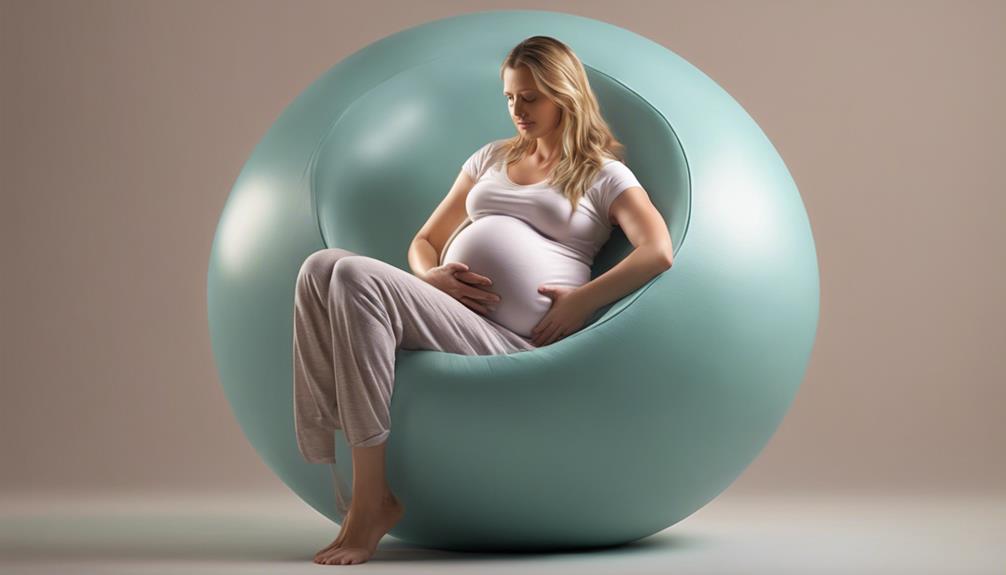
Feeling intense pain in your buttocks during the third trimester of pregnancy can seem like a daunting obstacle, but don’t worry, there are successful methods to alleviate it.
From simple adjustments in posture to incorporating specific exercises and utilizing comforting heat or cold packs, there are several strategies that can ease this discomfort.
By exploring these 10 methods, you might just discover a solution that brings you the much-needed comfort you deserve during this important phase of pregnancy.
Key Takeaways
- Maintain proper posture and use supportive cushions to reduce strain on your back and buttocks.
- Engage in physical therapies like prenatal yoga and massage to alleviate sharp butt pain.
- Use heat therapy with a warm compress and supportive tools like maternity belts for relief.
- Practice pelvic floor exercises like Kegels to strengthen core muscles and support pelvic stability.
Proper Posture and Body Mechanics
Maintaining proper posture during the third trimester of pregnancy is essential in reducing strain on the back and buttocks. As the body undergoes significant changes, it's vital to pay attention to how we sit, stand, and move to alleviate sharp butt pain and nerve discomfort. Engaging core muscles and avoiding slouching can make a noticeable difference in minimizing discomfort in the buttocks area. Aligning the spine and pelvis correctly not only supports the growing belly but also eases pressure on the buttocks, lessening overall pain.
To enhance comfort, consider using supportive cushions or pillows while sitting or sleeping. These aids can help promote better posture and reduce strain on the buttocks. By practicing good body mechanics and being mindful of our posture, we can mitigate the sharp butt pain associated with the third trimester of pregnancy. Taking small steps to adjust how we move and support our bodies can have a significant impact on our overall well-being during this crucial time.
Prenatal Yoga and Stretching

Let's explore how prenatal yoga and stretching can effectively alleviate sharp butt pain during the third trimester of pregnancy. Incorporating these practices into your routine can provide much-needed relief from muscle tension and discomfort in the pelvic area.
Here are five key points to ponder:
- Prenatal yoga enhances flexibility and reduces muscle tension, easing sharp butt pain.
- Specific poses like cat-cow, child's pose, and pigeon pose target the buttocks and pelvic area for pain relief.
- Regular stretching exercises alleviate tightness in the buttocks and lower back, common sources of pregnancy-related butt pain.
- Deep breathing techniques during prenatal yoga sessions enhance relaxation and reduce stress on the muscles supporting the pelvis and lower back.
- Consistent practice of prenatal yoga and stretching promotes better posture, improved circulation, and overall well-being in the third trimester.
Embrace these methods to find comfort and relaxation amidst the challenges of pregnancy.
Warm Compress or Heating Pad
Using a warm compress or heating pad can bring much-needed relief to tense muscles in the buttocks during the third trimester of pregnancy.
Heat therapy assists in increasing blood flow to the affected area, aiding in healing and reducing sharp butt pain.
It's a safe and effective method to manage discomfort, providing soothing comfort as you navigate the challenges of late pregnancy.
Heat Therapy Benefits
To alleviate tight muscles and discomfort in the buttocks during the third trimester of pregnancy, consider the benefits of heat therapy through the use of a warm compress or heating pad. Heat therapy offers several advantages:
- Relax Tight Muscles: Heat from a warm compress or heating pad can help loosen tense muscles in the buttocks.
- Increased Blood Flow: Applying heat improves circulation to the area, reducing discomfort and aiding in muscle relaxation.
- Soothing Lower Back: Heat therapy can provide comforting relief to the lower back and buttocks, easing sharp pain common in pregnancy.
- Safe Muscle Relaxation: It's a safe and non-invasive method to alleviate muscle tension in the buttocks region.
- Enhanced Comfort: Proper use of heat therapy can temporarily relieve sharp butt pain in the third trimester, enhancing overall comfort.
Safe Application Tips
For safe and effective relief from sharp butt pain in the third trimester of pregnancy, proper application of a warm compress or heating pad is essential. Using a heating pad or warm compress can help alleviate the discomfort caused by tense muscles in the buttocks. The heat from these devices aids in improving circulation to the area, offering localized relief from the sharp pain experienced during this stage of pregnancy.
Remember to make sure that the temperature of the compress or heating pad is comfortable and not too hot to avoid any burns. It's advisable to follow the guidance of your healthcare provider on the frequency and duration of using warm compresses or heating pads to effectively manage the sharp butt pain throughout the third trimester.
Supportive Pregnancy Pillow
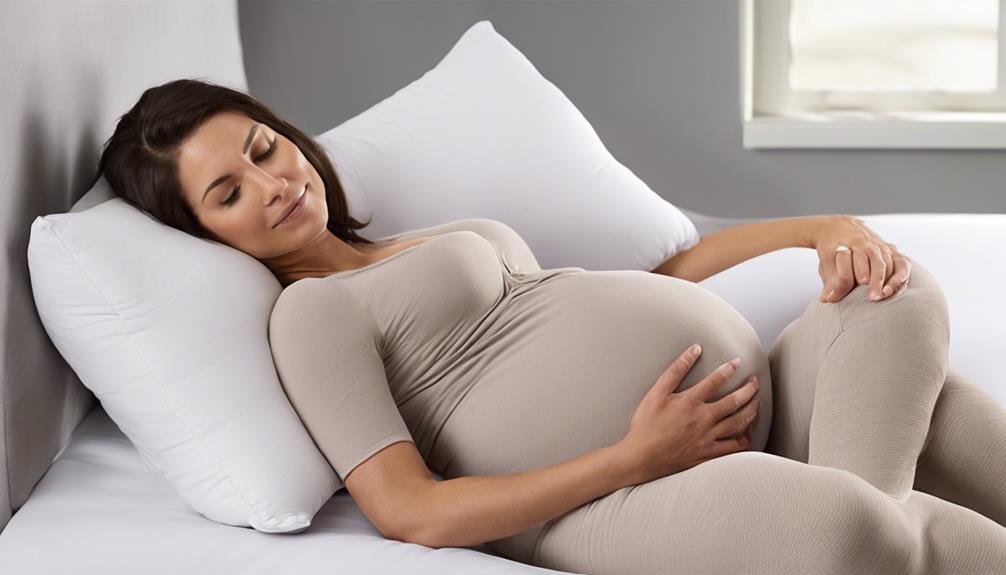
Investing in a supportive pregnancy pillow can greatly alleviate sharp butt pain during the third trimester by providing proper alignment and support for your growing belly. These pillows are a game-changer in improving your comfort and sleep quality. Here are five reasons why you should consider using a supportive pregnancy pillow:
- Alleviates Pressure: Designed to relieve pressure on your lower back, hips, and buttocks, reducing discomfort.
- Improves Posture: The unique shape of a pregnancy pillow can help enhance your sleeping posture, promoting better spinal alignment.
- Enhances Sleep Quality: Investing in a quality pregnancy pillow can enhance your overall comfort and contribute to a more restful night's sleep.
- Manages Pain: Using a supportive pregnancy pillow can make a significant difference in managing sharp butt pain.
- Promotes Relaxation: It allows you to relax and unwind more comfortably during the last months of pregnancy.
Experience the relief and comfort a supportive pregnancy pillow can provide during this critical time.
Pelvic Floor Exercises

Let's talk about pelvic floor exercises as a key method to relieve butt pain in the third trimester of pregnancy.
Engaging in Kegel exercises can help strengthen core muscles and support the pelvic region, potentially reducing discomfort.
These exercises are essential for enhancing pelvic stability and promoting better muscle control during this critical time.
Kegels for Pelvic Health
Strengthen your pelvic floor muscles through Kegel exercises to support your body during pregnancy and improve your overall pelvic health.
- Kegels help reduce the risk of urinary incontinence and pelvic organ prolapse postpartum.
- Regular practice can alleviate pelvic discomfort and enhance circulation.
- They promote muscle tone and flexibility, aiding in postpartum recovery.
- Proper technique and consistency lead to improved pelvic health in the third trimester.
- Kegels can also boost sexual satisfaction by strengthening pelvic floor muscles.
Strengthening Core Muscles
Engaging in pelvic floor exercises during pregnancy can effectively strengthen core muscles to alleviate discomfort and enhance overall stability in the pelvis and lower back. These exercises, like Kegels, target the muscles supporting the bladder, uterus, and bowel, aiding in pelvic pain relief and improving lower back stability.
Consistent practice of pelvic floor muscle contractions not only prepares the body for childbirth but also plays an important role in postpartum recovery by preventing issues like incontinence. By promoting better bladder control and overall pelvic health, these exercises contribute to a more comfortable pregnancy experience and facilitate a smoother changeover into the postpartum period.
Strengthening core muscles through pelvic floor exercises is a valuable investment in your well-being during and after pregnancy.
Chiropractic Care

Chiropractic care during pregnancy offers effective relief from sharp butt pain by adjusting spinal alignment and alleviating nerve pressure. Here are some key points to take into account:
- Chiropractic adjustments are safe and tailored to meet the needs of pregnant women, providing gentle yet effective pain relief.
- Studies have demonstrated that chiropractic care can reduce pelvic and lower back pain, common discomforts experienced during pregnancy.
- Regular visits to a chiropractor in the third trimester can enhance overall comfort and mobility for expectant mothers.
- Many pregnant women have reported a significant improvement in buttock pain and overall well-being after incorporating chiropractic care into their prenatal routine.
- Chiropractors utilize specific techniques that aren't only beneficial for alleviating pain but also promote a sense of relaxation and well-being, pivotal during this special time in a woman's life.
Chiropractic care can be a valuable tool in managing discomfort during pregnancy, offering a holistic approach to support the body as it undergoes numerous changes.
Massage Therapy
To address the discomfort in the buttocks during the third trimester of pregnancy, exploring the benefits of massage therapy can offer relief by targeting muscle tension and promoting better circulation.
Pregnancy can bring about sharp butt pain due to the strain on muscles and shifting posture. Seeking out a certified prenatal massage therapist who understands the specific needs of pregnant women can make a significant difference in managing this discomfort. These trained professionals can focus on areas of tension, like the buttocks and lower back, using techniques that are safe and effective during pregnancy.
Prenatal massage therapy can pinpoint trigger points in the buttocks to alleviate pain and enhance relaxation. Regular sessions with a certified therapist can help you navigate the changes your body is experiencing as your pregnancy progresses. By consulting with a qualified professional, you can receive personalized care tailored to your comfort and specific requirements during the third trimester.
Don't hesitate to explore the soothing benefits of massage therapy to ease your sharp butt pain and enhance your overall well-being during this pivotal time.
Acupuncture or Acupressure
Exploring the benefits of acupuncture or acupressure can provide natural relief from sharp butt pain experienced during the third trimester of pregnancy. Acupuncture involves inserting thin needles into specific points to alleviate pain and balance the body's energy flow, known as Qi.
On the other hand, acupressure applies pressure to the same points without the use of needles, offering a non-invasive alternative for pain relief. Both techniques can help manage sciatic nerve pain, pelvic girdle pain, and other sources of sharp butt pain in pregnancy.
Maternity Belt or Support Band

Using a maternity belt or support band during pregnancy can greatly alleviate lower back and abdominal strain, enhancing comfort and stability as the belly grows. Maternity belts provide vital support to the lower back and abdomen, reducing strain on the pelvis and back muscles. These support bands help distribute the weight of the baby more evenly, relieving pressure on the sciatic nerve and reducing buttocks pain. They are adjustable to accommodate the growing belly, ensuring a comfortable fit throughout the third trimester. Maternity belts can improve posture and stability, making daily activities like walking, sitting, and standing more comfortable for pregnant individuals. Healthcare professionals recommend maternity support bands to alleviate discomfort and promote better spinal alignment during the final months of pregnancy.
| Benefits | Description |
|---|---|
| Weight Distribution | Helps distribute the weight of the baby evenly, reducing pressure on the sciatic nerve. |
| Posture Improvement | Aids in improving posture, which is beneficial for overall comfort and stability during pregnancy. |
| Enhanced Comfort | Alleviates lower back and abdominal strain, providing increased comfort as the belly grows. |
Consultation With a Physical Therapist
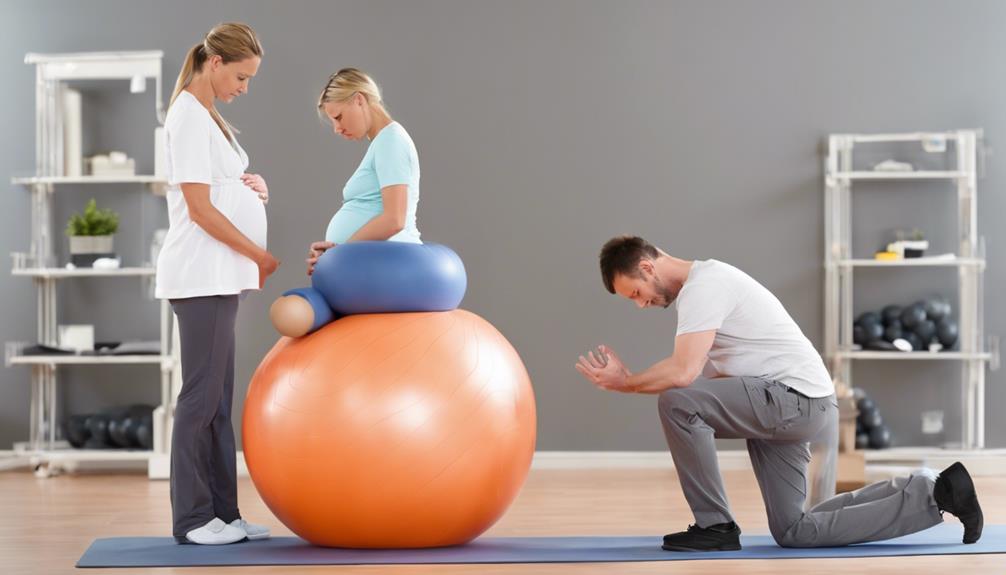
During your pregnancy's third trimester, engaging with a physical therapist can offer tailored exercises and stretches to alleviate sharp butt pain effectively. A consultation with a physical therapist is valuable in identifying the root cause of your discomfort and devising a personalized treatment plan. Here are five ways physical therapy can help alleviate sharp butt pain:
- Personalized exercises and stretches target the specific areas causing discomfort.
- Understanding the root cause of the pain leads to a customized treatment plan for best relief.
- Physical therapy sessions focus on strengthening muscles, enhancing flexibility, and correcting posture.
- Improved mobility and comfort from therapy can make daily activities more manageable.
- Techniques such as manual therapy, therapeutic exercises, and education on body mechanics are utilized to address sharp butt pain effectively.
Consulting with a physical therapist during the third trimester can enhance your quality of life by addressing and alleviating sharp butt pain.
Frequently Asked Questions
What Helps Buttock Pain During Pregnancy?
To help relieve buttock pain during pregnancy, we recommend engaging in prenatal yoga, using a supportive belly band, applying heat or cold packs, maintaining good posture, and seeking advice from a healthcare provider for personalized guidance.
How Can I Relieve Sciatic Nerve Pain During Pregnancy?
When dealing with sciatic nerve pain during pregnancy, we've found that gentle stretches, prenatal massage, and expert advice can be like a soothing balm. Remember, maintaining good posture, staying active, and using supportive pillows can make a world of difference.
What Is Shooting Pains in the Bum During Labour?
Shooting pains in the bum during labor are sharp sensations caused by pressure on the sciatic nerve due to the baby's position. Understanding this helps implement effective pain relief techniques for a smoother delivery.
How Should I Sleep With Sciatica During Pregnancy?
Wondering how to sleep with sciatica during pregnancy? We find relief by sleeping on our side with a pillow between our knees, elevating the top leg, and using a pregnancy pillow for belly and back support.
Conclusion
In the journey of pregnancy, dealing with sharp butt pain in the third trimester can be challenging. However, by incorporating the various methods mentioned, such as proper posture, prenatal yoga, and using supportive tools, relief is possible.
Just like a seed growing into a flower, taking care of our bodies during this time helps us bloom into motherhood with strength and resilience. Remember, you're capable of overcoming any discomfort that comes your way.
Nancy combines her love for writing with a deep understanding of the diverse dynamics of family life. As a parent, she brings personal experience and empathy to her work, covering topics from early childhood to the teenage years. Nancy’s work is driven by the belief that every family’s story is unique, and sharing these stories can inspire and support others on their parenting journey.
-

 Third Trimester3 weeks ago
Third Trimester3 weeks agoSafe Third Trimester Exercise Guide for Moms-to-Be
-

 Breastfeeding/Formula Feeding3 days ago
Breastfeeding/Formula Feeding3 days agoOvercoming Formula Feeding Guilt: 10 Ways to Feel Empowered
-

 Breastfeeding/Formula Feeding2 months ago
Breastfeeding/Formula Feeding2 months agoDairy-Free Breastfeeding Diet: A Comprehensive Guide
-

 Third Trimester2 months ago
Third Trimester2 months agoWhat Causes Low Platelets in Pregnancy During the Third Trimester?
-

 Newborn Care2 weeks ago
Newborn Care2 weeks agoEssential Newborn Care: A How-To Guide for Parents
-

 Third Trimester2 months ago
Third Trimester2 months agoSigns of Baby Distress in Third Trimester: What to Watch For
-

 First Trimester1 day ago
First Trimester1 day agoDramamine Use in Pregnancy: First Trimester Guide
-

 Third Trimester2 months ago
Third Trimester2 months agoMonitoring Fetal Heart Rate in the Third Trimester: A How-To Guide
